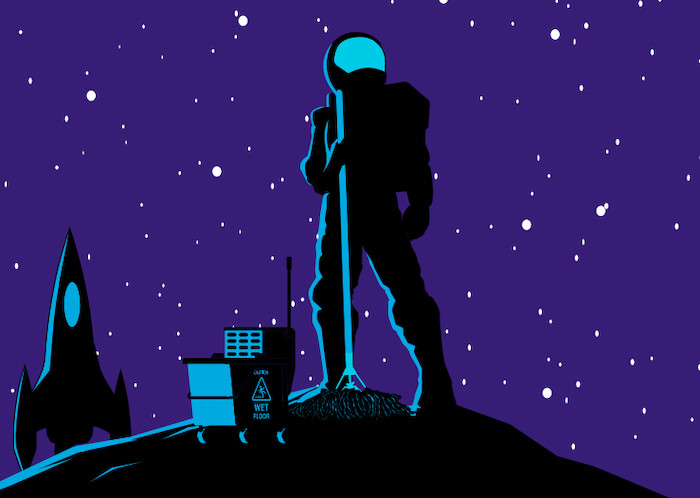
A stellar bar operation requires more than the star-tender. It’s time the view widened, says Ryan Chetiyawardana.
There’s this amazing line from JFK’s visit to NASA: “Hi, I’m Jack Kennedy. What do you do here?” to which the janitor with the broom responds: “Well, Mr President, I’m helping put a man on the moon.” Be it a space or a bar programme, everyone plays their part.
But you wouldn’t know it in the bar industry, where the focus normally falls on the superstar bartender as the creative – the deliverer of deliciousness. You won’t find many articles about the importance of P&L, the bar back or the HR department, nor any of the other vital functions of a bar. The bartender gets all the credit but is lost without their team’s support.
Of course, it is no different for me. I attempt to divert the light to others within the team, but with my name on the door, most of the focus ends up falling on me. It’s a great shame that in my business and so many others, the efforts of so many vital contributors never make the annals. I think we could do better to understand, communicate and celebrate a broader definition of bar roles.
As bartenders it starts by understanding and empathising with the various functions of a bar and what makes them tick. Great bartenders do this – they have a holistic approach. By gaining this appreciation of the overall picture you will work better together.
I, like most bartenders, grew from the bar back (or kitchen porter) role, and no matter what sort of bar you work at, this position is crucial to the smooth running of the operation – so how might you help them, so they can help you? Perhaps in your bar you have dedicated front-of-house team members – what are the challenges they face, how can you help them and how can you function better together, you might ask yourself – or them. Also, think about the roles outside of the business – understanding the value and needs of PR, marketing or photography. I recall the grumpiness with which bartenders would moan about a request to make a drink again for the photographer to capture a certain aspect more closely. There’s a reason they’re asking.
Look at the bigger picture
By empathising more with one another, the team will function better, but you, the bartender, will grow too. Take the time to look beyond your immediate interests and learn about a role you know little about. Ask your teams what interests them to find how you can play to their passions, and champion all the efforts that go into making the whole work.
Be humble: there is no hierarchy in a team. You can learn from the world’s best street sweeper in the same way you can the world’s best sommelier. On a practical level, expanding your skillset – for example becoming an Excel ninja – is of great benefit to small businesses, whether you want to grow within the business you’re in or in the future for your own business.
This is one of the reasons no one inherits roles in the Lyan company; everyone has different skills and understanding what they are is crucial to achieving your potential. Following the established path seldom leads to that.
In many successful bar operations there is a group of people or a partnership in which there is a breadth of skills and talent. Take Bramble: without Jason Scott, we’d all be drinking cocktails that taste like jam (before Bramble, everything followed the same formulae, same ingredients, and had a balance skewed to simply balance fruit sweetness and acidity), but what often gets missed is that there would be no Bramble to change the global scene without Mike Aikman. The balance within the partnership is what allowed the influence to prosper.
As an industry, can we reframe our focus so it doesn’t always fall on ‘creativity’? I think we can. The sooner we recognise that a janitor did help to put a man on the moon, the better.


